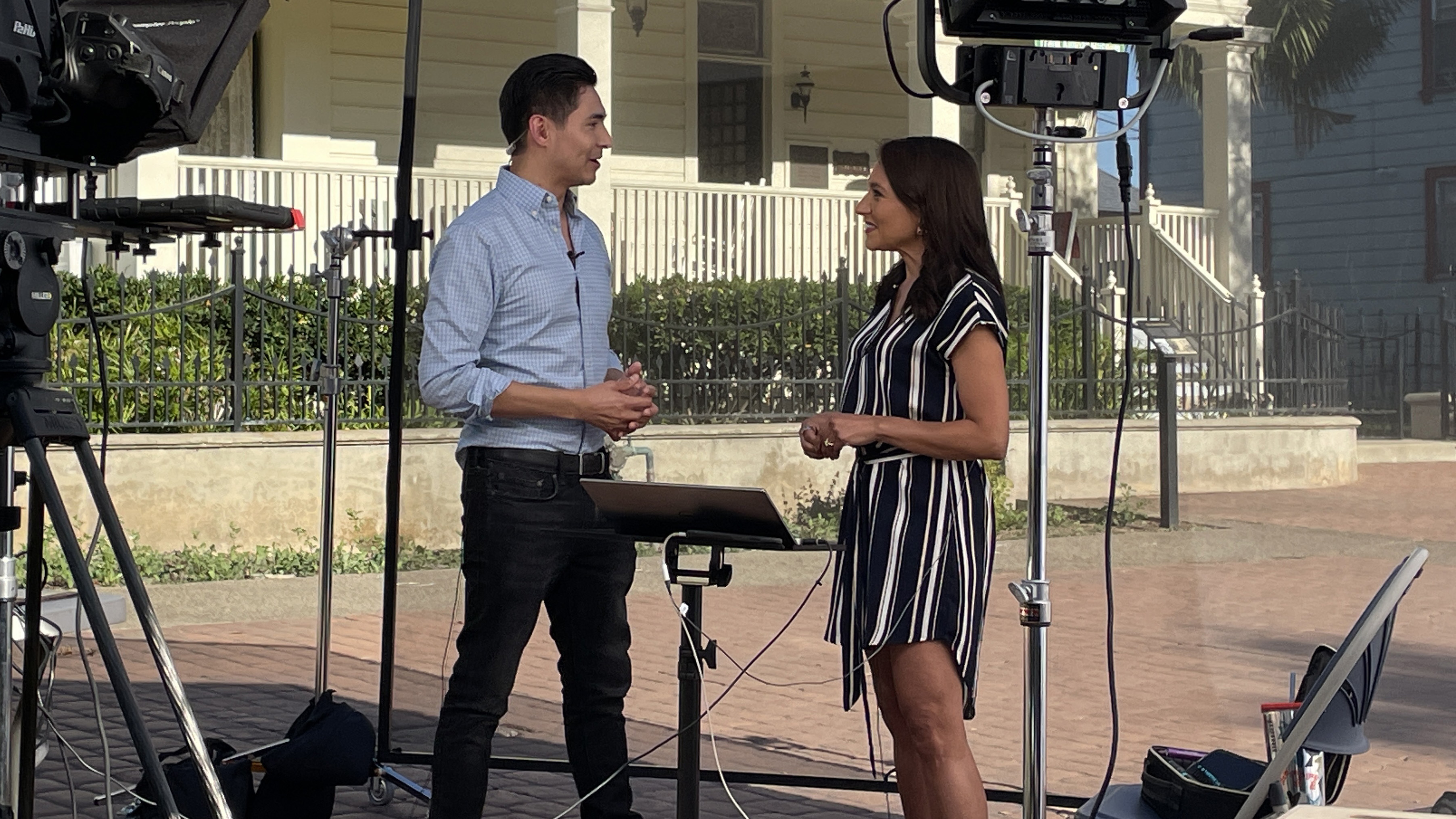Chair of the County Board of Supervisors Nora Vargas invited members of San Diego's congressional delegation to tour the place that has been used as a migrant transitioning center since mid-October.
The County Board of Supervisors authorized $3 million in emergency funding to open the shelter to handle the influx of migrants arriving in San Diego since September. From mid-October to mid-November, 30,000 migrants have come to San Diego, according to the county.
This week, the county is planning a vote that would allocate an additional $3 million.
Vargas said she wanted members of San Diego's congressional delegation to see firsthand the work that is being done at the transitioning center and she says she urgently is asking them for additional money from the federal government to keep the center open.
Get San Diego local news, weather forecasts, sports and lifestyle stories to your inbox. Sign up for NBC San Diego newsletters.
"I’m afraid that if we don’t have a location like this, we’re going to go back to a place where people are dropped at different locations throughout the county and that is just not safe for them," Vargas said.
Congressman Juan Vargas was the only member of the congressional delegation to attend the tour. A representative from Congressman Darrell Issa's office said they were never invited. Congressman Vargas said he didn't believe the county had applied for money from the $60 million that had been allocated for the Shelter and Services Program nationally through the Department of Homeland Security for migrant processing programs.
"We didn’t get that application. We’ve been trying to find out what happened to that application. We haven’t found it, so we didn’t see it," said U.S. Rep. Juan Vargas, a Democrat from the 52nd District which encompasses San Diego's border region.
Local
Vargas said that wasn't true and that the county did apply for the funds through the local nonprofit, Catholic Charities, and that the organization had been granted $12 million in the last fiscal year.
Congressman Vargas said he is trying to get $1.2 billion in supplementary funding for the Shelter and Services Program to get passed along with the rest of the budget next week.
When San Diego began to see the influx of migrants in September, buses of migrants were being dropped off at transit stops around the county. Local nonprofits who were helping the migrants appealed to the San Diego County Board of Supervisors for help. Ultimately the stakeholders decided that having a centralized processing center would be the best way to handle the growing numbers.
What happens to migrants after they arrive in the US?
Now buses arrive at the center hourly from the U.S. Customs and Border Protection locations at Otay Mesa and San Clemente. The center processes around 500 to 700 migrants daily. After getting off the buses, the migrants have intake interviews, are able to purchase bus or plane tickets with their own money to their final destination, get a warm meal and sometimes warm clothes if they need them. The facility costs $1.5 million to run monthly and is open from 7 a.m. to 7 p.m. It is currently being run by SBCS, a local nonprofit, who says that they have around 15 paid staff working at the center daily and that they also provide buses to San Diego International Airport daily.
The workers at the center told NBC 7 that lately, they have seen more migrants coming from Turkey, Colombia, Mauritania, Togo, Guinea, Brazil and China. Around 70% of the migrants who come to the center are men. Women with children, pregnant women, senior citizens, migrants who identify as LGBTQ, and migrants with medical issues are all considered vulnerable and are taken to Jewish Family Services and Catholic Charities. Most migrants stay at the processing center for approximately six hours. The center is not open overnight so if the migrants need somewhere to sleep before they leave San Diego, they are referred to local churches and nonprofits for the night.
How you can help migrants
The workers at the center say they are in great need of warm adult clothes and backpacks. You can donate items to SBCS at 430 F Street in Chula Vista. For more information visit: https://sbcssandiego.org/



